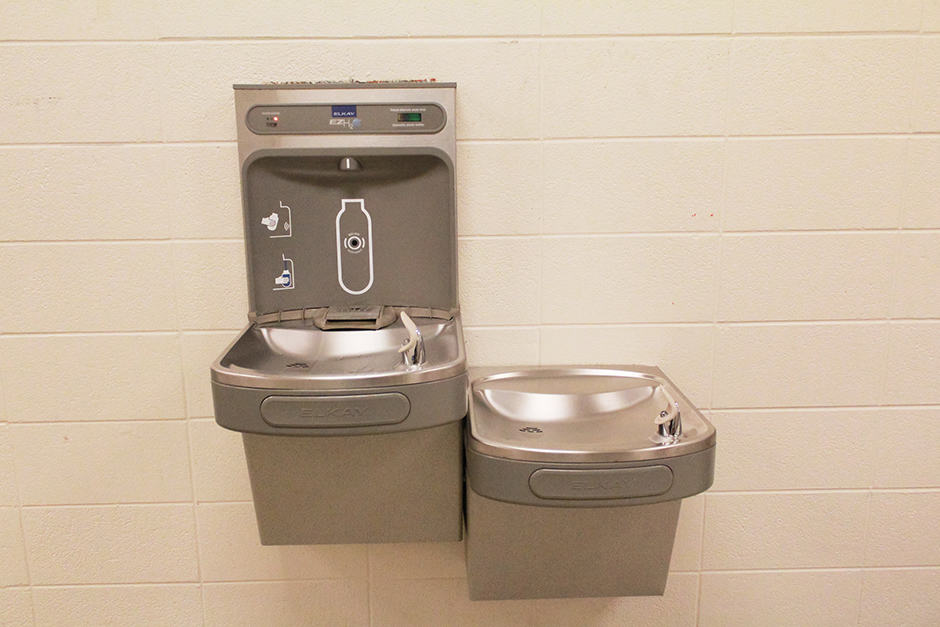Since September 2011, the sale of bottled water has been banned at the University of Toronto’s St. George Campus.
As a result, continuous access to water can require prudent, strategic planning.
“On my way to class, I always stop by Hart House — they have a great water station there,” says Kathleen Harris, a graduate student at the Faculty of Information.
The university currently has upwards of 80 similar water refilling stations across campus, which equates to about one water refilling station for every 700 students.
According to Ron Swail, assistant vice-president of facilities and services, there is also a “plan to continue to install more stations going forward.”
According to the online university map, water refilling stations are located in around 50 of the university’s 144 buildings — although Swail notes that the map is out of date.
The purpose of the ban is to counter the commercialization of drinking water and to provide students with rigorously tested water that is free of contamination.
However, the reduced availability of bottled water may have also drawn students to less healthy options.
Clutching a Coca-Cola soft drink, Savana James, a book and media studies student, says that a bottle of water would have been her choice had it been available.
Sitting next to her, Yanjun Wi, a psychology student, expresses a similar view while holding his Fanta soft drink.
Students have become accustomed to the ban — carrying reusable bottles to class and purchasing bottled water less frequently.
“Compared to other areas in the city like the Air Canada Center, students at the U of T buy less water,” says Muhammad Saqib, owner of a campus food cart.
But what if a student forgets his or her reusable water bottle?
When asked about an alternative for purchasing water, a cashier at the Robarts Library’s cafeteria advised purchasing an empty cup for 25 cents and filling it at the water refilling station around the corner.
At 5 pm, that water refilling station had a line of seven people, with each student taking a minute to fill their bottle.
The ban was implemented in response to a campaign by the Public Water Initiative (PWI) at U of T, a student group that, according to their website, was formed to “end the sale and distribution of bottled/commercialized water” on campus, and to “improve access to safe clean & sustainable tap water.”
The City of Toronto tests tap water samples four to five times daily — or every four to six hours — for more than 300 potential chemicals.
On the other hand, bottled water, a $100 billion industry, is regulated under the Food and Drugs Act and doesn’t require as frequent testing. Instead, bottled water simply needs to be prepared in sanitary conditions and not contain “poisonous and harmful substances.”
In a CBC investigation, the Canadian Food Inspection Agency (CFIA) responded by saying, “given that bottled water has an excellent safety record in Canada, CIFA’s planned inspection activities are currently focused on commodities that present a higher risk to human health and safety.”
Meanwhile, the Polaris Institute found 20 recalls between 2000 and 2009 on water products with contaminations.
Health Canada says water sold in Canada is good quality and doesn’t pose any health hazard.
At U of T, it took PWI three years to realize its objective. The group has also been influential across Canada, successfully lobbying for a ban at seven other schools.
Toronto’s and New York City’s councils have also recently extended the ban to all municipal facilities.
Editor’s Note: A previous version of this article labelled U of T’s water refilling stations as Hydration Stations, a registered mark of the Haws Corporation.


